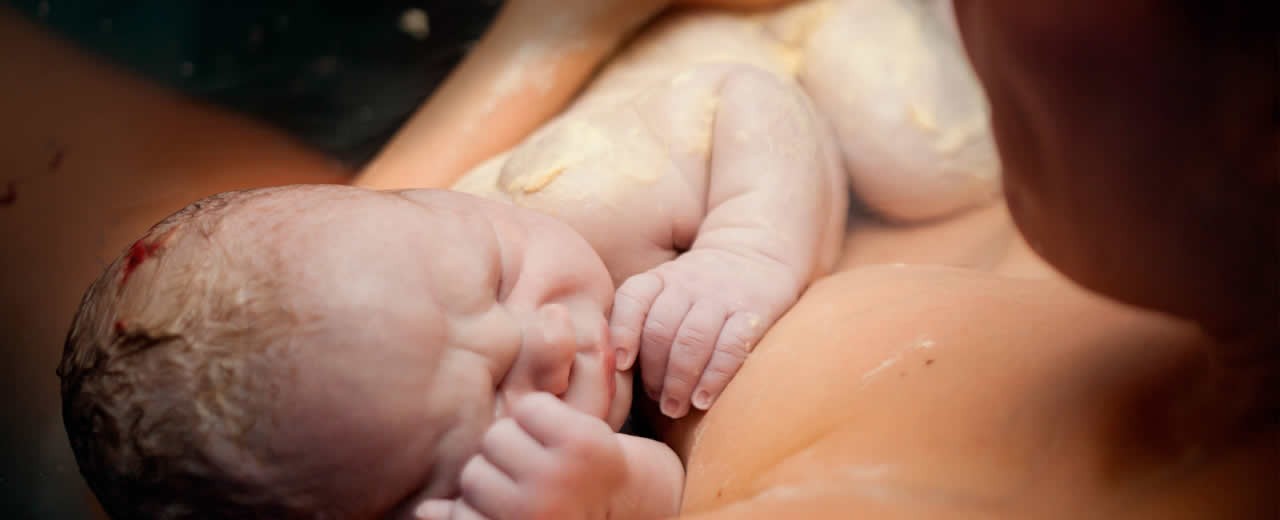Amniotic fluid leak - Signs, causes and actions

Amniotic fluid leak - Signs, causes and actions
During pregnancy, the baby is surrounded by amniotic fluid. This liquid helps to protect the baby and its overall development.
One of the main ways in which the amniotic fluid and the amniotic sac (the membrane that holds the fluid inside the uterus) protect your baby, is to keep germs out thus reducing the risk of infection.
If your water breaks normally, it will be obvious what happened. However, sometimes small amounts of fluid and mucus leak and may make you wonder if it is amniotic fluid, accidental urine leakage, or just an increase in vaginal discharge that normally occurs during pregnancy.

Signs of amniotic fluid leakage
Sometimes it can be difficult to understand what you find in your undergarments or while wiping yourself after using the toilet. The amniotic fluid, however, is slightly different from urine or vaginal / cervical secretions. See more here.
The amniotic fluid:
- Is generally odorless.
- Continues to leak, sometimes with steady flow.
- Your underwear and sanitary napkins should be changed frequently as the leak is steady.
- You have no control over the flow, unlike urine.
- It is mostly clear, possibly tinged with white specs and mucous or a bit of blood.
- If there’s a greenish to brownish tint, contact your doctor immediately as it could be a sign baby had a bowel movement in utero.
It is not amniotic fluid if:
- There is an odor or a yellow look like urine.
- It is thick as mucus, so it requires changing your sanitary napkin for hygienic purposes, but the sanitary napkin is not soaked.
- It was a sudden leak because you or the baby did a sudden movement or when you feel your bladder full. However, after the initial leak there is no steady flow of liquid.
How can I be sure if the leaking fluid is amniotic fluid?
There are two ways.
The first is to call your doctor and try to explain what is happening so your doctor will to try to figure out whether the fluid is amniotic or something else.
The second is to use the Vaginal pH Test. See more here.
When should I call my doctor?
If you have done the test and you suspect that the fluid is amniotic, then you should contact your doctor immediately.
If you have not done the test, you should call your doctor whenever you are uncertain what this discharge is.
In any case, you should call or go to your doctor immediately if:
- You are less than 37 weeks gestation and believe you are leaking.
- You know that you have amniotic fluid leak and this is accompanied by fever.
- The liquid is green.
- The flow remains steady and/or increases and you’re continuing to soak through your underwear.

What causes leakage of amniotic fluid?
If you’re at term (37 weeks of pregnancy or later), an amniotic fluid leak could simply be part of your body preparing for labor.
A leak might become a full membrane rupture, known as spontaneous rupture of membranes (SROM). If you’re at term, this is a normal process and rarely something to be concerned about. If you’re preterm (less than 37 weeks gestation) and/or your body hasn’t begun laboring, it’s not always clear why the amniotic sac may begin to leak.
Possible causes for this are:
- An untreated infection.
- Old cervical surgery.
- Lifestyle choices that cause health complications, such as smoking, illegal substances, or a very poor diet.
- Injury of the amniotic sac (e.g. car accident).
- Background of premature rupture.
What can I do?
If you’re full term, your doctor will determine whether labour begins on its own. During this time, it is important that you do not insert anything in your vagina to reduce the risk of infection. Limit vaginal examinations, avoid sexual intercourse and vaginal douches. If you are over 34 weeks and especially over 37 weeks, your doctor may recommend labor induction.
If you are less than 37 weeks and you suspect or know you have a leak, your doctor will probably want to see you immediately. If it is a small leak, especially from the top of the amniotic sac, the doctor may ask you to wait and see if the leakage will stop on its own. During this time, you may be asked to be on limited or even full bedrest, and surely avoid inserting anything in your vagina. You may also be tested for infections, including the Streptococcus-B group. If you get a positive result, you'll probably start antibiotics (see more here and here).
If you are less than 34 weeks and not yet in labor, many doctors will aim to prolong your pregnancy, especially if it is a small leak with the potential to seal by itself. Your doctor should check for any infections and also be sure that your baby tolerates the smaller amount of amniotic fluid in the sac.
--------------------
See all of our blog posts, by clicking here.
0 comment(s)